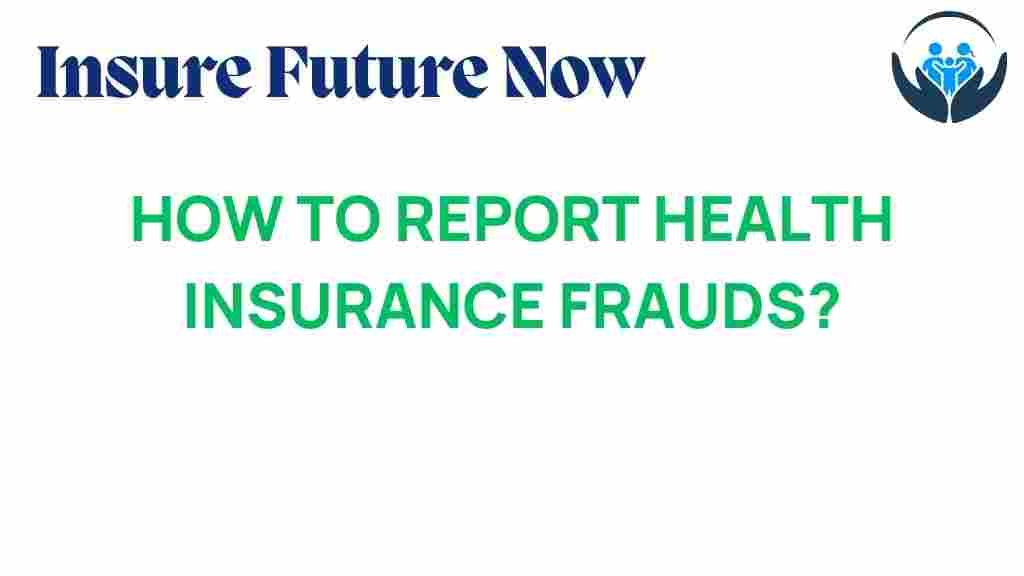Unmasking Deception: How to Report Health Insurance Fraud
Health insurance fraud is a pervasive issue that undermines the integrity of the healthcare system, inflating costs and compromising care for honest consumers. Fraudulent activities can range from falsifying claims to billing for services not rendered. Understanding how to report fraud is essential for protecting yourself and ensuring the healthcare system remains fair and just for everyone. This article will guide you through the steps to report fraud, offer tips for fraud prevention, and highlight the importance of consumer protection in the realm of health insurance.
Understanding Health Insurance Fraud
Health insurance fraud occurs when an individual or organization intentionally deceives a health insurer to gain an undeserved benefit. This can happen in various forms, including:
- Billing for services not rendered: Providers charge for treatments that were never provided.
- Falsifying patient records: Altering medical records to justify unnecessary tests or procedures.
- Upcoding: Submitting claims for more expensive services than those actually performed.
- Kickbacks: Offering or accepting payments for referrals of patients for services.
These fraudulent activities not only harm insurers but also lead to increased premiums for consumers, reduced trust in healthcare providers, and potential legal consequences for those involved.
The Importance of Reporting Fraud
Reporting health insurance fraud is crucial for several reasons:
- Protecting your finances: Fraudulent claims can lead to higher insurance premiums for everyone.
- Ensuring healthcare integrity: By reporting fraud, you help maintain the quality and reliability of healthcare services.
- Consumer protection: Reporting helps authorities investigate and take action against fraudulent activities, protecting other consumers.
Step-by-Step Process to Report Health Insurance Fraud
If you suspect that you or someone else is a victim of health insurance fraud, it’s important to take action. Here’s a step-by-step guide on how to report fraud effectively:
Step 1: Gather Evidence
Before you report fraud, collect as much information as possible:
- Documentation: Gather any relevant documents, such as bills, insurance policies, and medical records.
- Details of the fraud: Note down specific instances of suspected fraud, including dates, names, and descriptions of the services involved.
- Witnesses: If possible, identify any witnesses who can support your claim.
Step 2: Contact Your Insurance Provider
Most insurance companies have dedicated fraud investigation units. Start by contacting your insurer’s customer service department:
- Provide them with the evidence you have gathered.
- Ask about their process for reporting fraud.
- Keep a record of your conversations, including dates, times, and names of representatives you speak with.
Step 3: Report to Government Authorities
In the United States, you can report health insurance fraud to various government agencies:
- Medicare Fraud: If you suspect Medicare fraud, report it to the Medicare Fraud Hotline.
- Medicaid Fraud: If Medicaid is involved, contact your state’s Medicaid fraud control unit.
- State Insurance Department: Every state has a department that regulates insurance companies. Report fraud to them as well.
Step 4: File a Complaint with the National Insurance Crime Bureau (NICB)
The NICB is dedicated to combating insurance fraud. You can file a complaint online through their website. This step ensures that your report reaches a broader audience and can lead to a more comprehensive investigation.
Step 5: Follow Up
After reporting, follow up with the authorities and your insurance provider to track the progress of your claim. Keeping communication lines open can help you stay informed and involved in the investigation process.
Troubleshooting Tips for Reporting Fraud
Reporting health insurance fraud can be daunting. Here are some troubleshooting tips to ensure your report is taken seriously:
- Be clear and concise: When providing information, be as straightforward as possible. Avoid jargon and stick to the facts.
- Document everything: Keep copies of all correspondence related to your fraud report.
- Stay persistent: If you don’t receive a response, don’t hesitate to follow up. Persistence can lead to action.
Fraud Prevention: Protecting Yourself and Others
Preventing health insurance fraud requires vigilance from consumers, healthcare providers, and insurers. Here are some tips for fraud prevention:
- Review your insurance policies: Understand your coverage and keep track of your claims.
- Examine your medical bills: Regularly review medical bills for accuracy and report discrepancies immediately.
- Be cautious with personal information: Protect your personal data and be wary of unsolicited requests for your health or financial information.
- Educate yourself: Stay informed about common types of fraud and how to recognize them.
Conclusion
Health insurance fraud is a serious issue that affects everyone in the healthcare system. By understanding how to report fraud and actively participating in fraud prevention, you contribute to a more transparent and effective healthcare system. Remember that consumer protection is a shared responsibility, and your vigilance can help maintain healthcare integrity. If you suspect fraud, don’t hesitate to report it to your insurer and relevant authorities. Together, we can work towards a fraud-free healthcare environment.
For more information on consumer protection and fraud prevention, you can visit Consumer FTC.
This article is in the category Tips and created by InsureFutureNow Team
